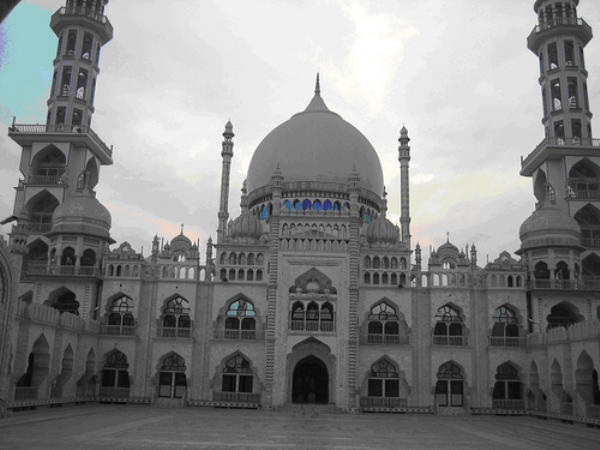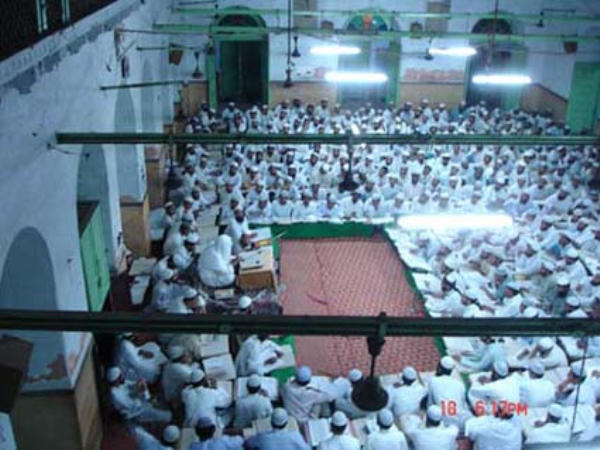
Background
In 1857, the British East India Company put down with a heavy hand the independence movement begun by disparate north Indian forces, conducted in the name of the otherwise powerless Bahadur Shah Zafar Gurakani. Emperor Zafar became the last Mughal Emperor, for he was deposed the following year and exiled to Burma, with many of his sons put to death. This marked a seminal moment for Indo-Islamic consciousness, specifically for the established Muslim elites of north India, who tended to view the defeat of 1857 as the end of their political pre-eminence and the beginning of what could be a dark period of Muslim history in India.
In this situation, a group of learned theologians, led by Maulana Muhammad Qasim Nanautawi, established the Darul Uloom Seminary in the town of Deoband, in order to preserve Indo-Islamic culture and train the youth in Islamic knowledge. The foundation of Darul Uloom Deoband was laid down in 1283 A.H. (21st of May 1866 A.D.) beneath a pomegranate tree. Nanautawi claimed he had been inspired to do so by a dream in which the Prophet Mohammed spoke to him.The pedagogical philosophy of Deoband was focused on teaching revealed Islamic sciences, known as manqūlāt, to the Indian Muslim population, according to the Hanafi tradition. In this seminary, Nanautawi instituted modern methods of learning: Teaching in classrooms, a fixed and carefully selected curriculum, lectures by different faculties recognised as leaders in their fields, exam periods, merit prizes, a publishing press and so on. The faculty instructed its students primarily in Urdu, the lingua franca of the urbanised section of the region, and supplemented it with study of Arabic (for theological reasons) and Persian (for cultural and literary reasons. In due course, it also unwittingly cemented the growing association of the Urdu language with the north Indian Muslim community. The founders consciously decided to divorce the seminary from political or governmental participation. Instead, it was to run as an autonomous institution, supported by voluntary financial contributions from the Muslims at large.
Its over 15,000 graduates have gone on to found many similar madrassas (schools) across South Asia and further afield; the followers of this school of theology are often described as followers of the Deobandi school of thought.

Pattern of education
Deoband's curriculum is based on the 17th-century Indo-Islamic syllabus known as Dars-e-Nizami. The core curriculum teaches Islamic law (Shariah), Islamic jurispridence (Fiqh), traditional Islamic spirituality (known as Tasawwuf, which is the focus of Sufism), as well as several other fields of Islamic study.
Impact of the Deoband School
Many Islamic schools throughout modern India, Bangladesh and Pakistan - and more recently in Afghanistan, the United Kingdom, South Africa - as well as in hundreds of other places throughout the world are affiliated, or theologically linked, to Darul Uloom Deoband. Famous seminaries have been established by its graduates, e.g. Nadwatul Ulama in Lucknow, Madrassah In'aamiyyah Camperdown, near Durban in South Africa, and three important seminaries in Pakistan, viz. Darul Uloom Karachi, Jamia
Ashrafia Lahore, and Jamia Zia-ul-Quran (Al-maroof bagh wali
masjid) Faisalabad. As the official website of the Darul Uloom proclaims in flowery language, 'the whole of Asia is redolent with the aroma of this Prophetic garden.
Alumni scholars
The Deoband school of Islamic Sciences has produced a large number of notable scholars. Among the most famous are:
Anwar Shah Kashmiri
Sayyed Ata-ullah shah Bukhari, The greatest and finest speaker, scholar and Qari ever produced.
Ubaidullah Sindhi
Muhammad Shafi Uthmani (Mufti-e-Azam Pakistan)
Qari Muhammad Tayaib Qasmi. One of a leading scholar, Qari and finest speaker.(President of Khatm-e-Nubuwwat Movement Hong Kong China).
Maulana Abdul Majeed Nadeem shah (Multan Pakistan) One of the greatest and finest speaker, scholar and Qari after Sayyed Ata-ullah shah Bukhari.
Muhammad Ilyas]] Kandhelvi
Abul Hasan Ali Nadwi
Nik Aziz Nik Mat (Chief Minister of Kelantan State, Malaysia)
Allama Ghulam Mustafa Qasmi, Sindh, Pakistan
Shaikhul Hadith Maulana Naseer Ahmad Khan Buland Shehri




